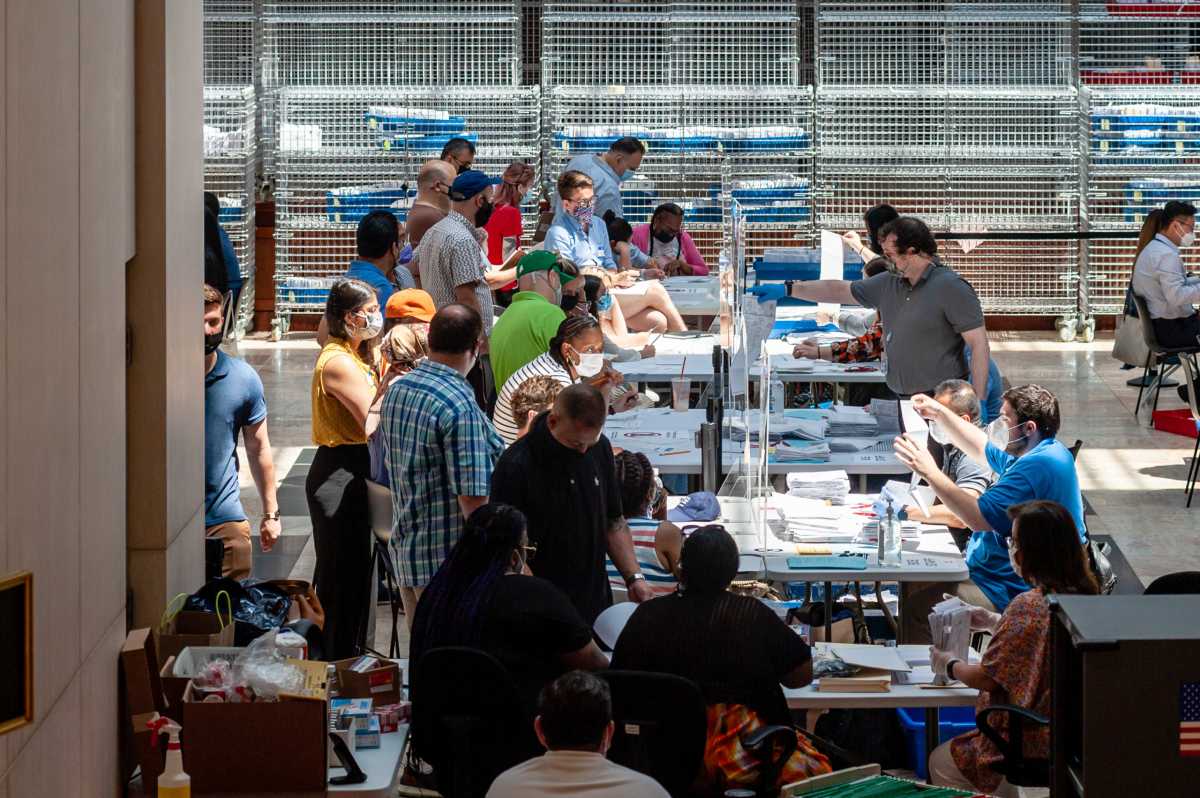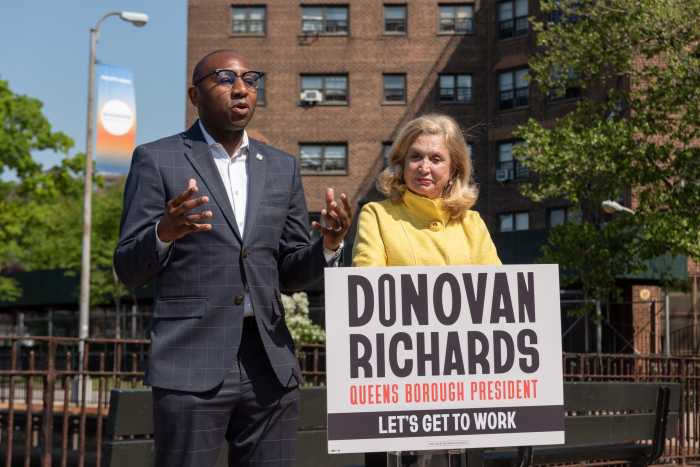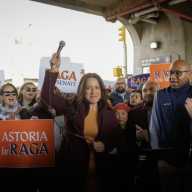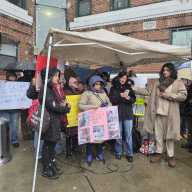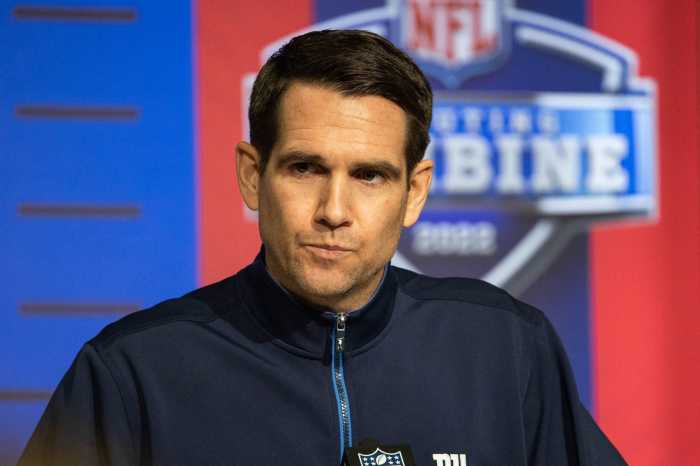The error-prone Board of Elections (BOE) admitted late at night on Tuesday, June 29, that it accidentally added about 140,000 votes to its preliminary ranked-choice voting (RCV) calculations released earlier in the day and promised an accurate preliminary recount soon.
In a tweet, the BOE blamed the error on not clearing test votes from their Election Management System before adding up the round-by-round RCV results. This led to an increase of more than 140,000 votes, or 941,832 total ballots counted, when in reality there should have been only 799,827 counted — those counted during the early voting period and on Election Day.
“[The] board staff has removed all test ballot images from the system and will upload election night results, cross-referencing against election night reporting software for verification. The case vote will be re-generated and the RCV rounds will be re-tabulated,” the BOE tweeted.
“The board apologizes for the error and has taken immediate measures to ensure the most accurate up-to-date results are reported,” it added.
The BOE said on its website that new results would be available later on Wednesday, June 30.
Frontrunner mayoral candidate and Brooklyn Borough President Eric Adams first noticed the error after the BOE released the preliminary RCV results with some 124,000 absentee ballots still to be counted.
According to those results, Adams had a razor-slim lead after 11 rounds with 51.1 percent of the vote (368,898 votes), with former Sanitation Commissioner Kathryn Garcia in second with 48.9 percent of the vote (352,990 votes).
Adams issued a statement following the BOE’s admission, saying the mistake was unfortunate.
“It is critical that New Yorkers are confident in their electoral system, especially as we rank votes in a citywide election for the first time. We appreciate the board’s transparency and acknowledgment of their error. We look forward to the release of an accurate, updated simulation, and the timely conclusion of this critical process,” Adams said.
Garcia called the BOE’s release of incorrect ranked-choice votes deeply troubling.
“Every ranked-choice and absentee vote must be counted accurately so that all New Yorkers have faith in our democracy and our government. I am confident that every candidate will accept the final results and support whomever the voters have elected,” she said.
Attorney Maya Wiley, who came in third place just behind Garcia and could possibly still come out on top once all RCV and absentee ballots are counted, called the BOE error the result of generations of failures that have gone unaddressed.
“Last summer [the] BOE mishandled tens of thousands of mail-in ballots during the June 2020 primary. It has also been prone to complaints of patronage. The BOE must now count the remainder of the votes transparently and ensure the integrity of the process moving forward. New Yorkers deserve it,” she said.
Mayor Bill de Blasio also weighed in on the BOE’s issue on Wednesday morning, saying the “fundamental flaws” of the agency are yet again on display.
“There must be an immediate, complete recanvass of the BOE’s vote count and a clear explanation of what went wrong. The record number of voters who turned out this election deserve nothing less,” de Blasio said. “Going forward, there must be a complete structural rebuild of the board.”
Hizzoner said he previously offered the BOE “over $20 million” to reform, but said they refused. De Blasio’s now calling on legislative action, and is advocating for the passage of state Senator Liz Krueger and Queens Assemblywoman Nily Rozic’s bill (S. 6226/A. 5691) to “professionalize” the BOE’s in its current form and make them directly accountable to New York City’s elected officials.
De Blasio is also calling for an amendment to the State Constitution that would allow for a new, professional board, removed of party affiliation.
“It’s a necessary, fundamental change,” de Blasio said.
Meanwhile, Queens City Councilman I. Daneek Miller, co-chair of the Council’s Black, Latino and Asian Caucus, ramped up the call to pass his legislation (Introduction 2326) giving voters another chance to weigh in on the merits of RCV in the November general election.
“Both the BOE and pro-RCV advocates assured voters that this would be a seamless process, and yet, the opposite appears to be true,” Miller said. “The fact that the Board of Elections is unable to determine the source of the discrepancy and we are still waiting on council and borough president tallies highlights the total ineptitude to hold an RCV election in what is one of the most impactful election cycles as we begin to recover from the pandemic.”
Miller said the United States has recently witnessed what happens when the “integrity of our elections are called into question.”
“Right, wrong or indifferent, Jan. 6 is a reality,” he said. “We cannot allow this process to erode confidence in our democracy, and I question the intentions of anyone who might be opposed to putting RCV up for a public referendum after witnessing today’s events.”
There are multiple Queens races that will need RCV to determine the winner, including the closely contested Queens borough presidents race and many of the crowded City Council races.
In the borough president race, incumbent Donovan Richards holds a small lead over former Councilwoman Elizabeth Crowley as of 8 a.m. on Wednesday, June 23. Richards secured 41.53 percent of the vote (64,814 votes), with Crowley at 40.20 percent of the vote (62,738 votes), according to unofficial results. Term-limited Councilman Jimmy Van Bramer followed in third place with 17.82 percent of the vote (27,813 votes).
Since no candidate received 50 percent of the vote, a ranked-choice voting count will be needed to determine the winner of the race after all absentee ballots are counted.
Democratic City Council districts 19, 20, 22, 23, 25, 26, 27, 29 and 32 had tight races, with no candidate making it to 50 percent of the vote. However, City Council districts 21, 24, 28, 30 and 31 had candidates who met the 50 percent threshold.
The BOE’s canvassing process that began on Monday, June 28, will continue until all absentee and other special ballots are counted. The second preliminary RCV report round by round elimination is scheduled to be released on July 6, according to the BOE.
Zachary Gewelb contributed to this story.
An earlier version of this story originally appeared on PoliticsNY.com.

